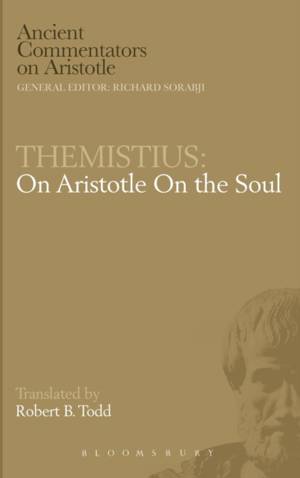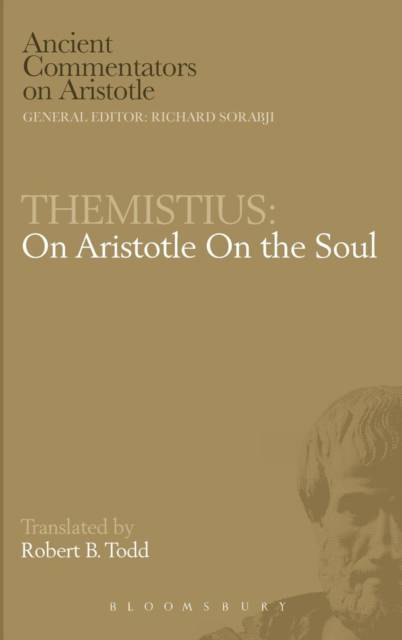
Door een staking bij bpost kan je online bestelling op dit moment iets langer onderweg zijn dan voorzien. Dringend iets nodig? Onze winkels ontvangen jou met open armen!
- Afhalen na 1 uur in een winkel met voorraad
- Gratis thuislevering in België vanaf € 30
- Ruim aanbod met 7 miljoen producten
Door een staking bij bpost kan je online bestelling op dit moment iets langer onderweg zijn dan voorzien. Dringend iets nodig? Onze winkels ontvangen jou met open armen!
- Afhalen na 1 uur in een winkel met voorraad
- Gratis thuislevering in België vanaf € 30
- Ruim aanbod met 7 miljoen producten
Zoeken
Omschrijving
Themistius ran his philosophical school in Constantinople in the middle of the fourth century A.D. His paraphrases of Aristotle's writings are unlike the elaborate commentaries produced by Alexander of Aphrodisias, or the later Neoplatonists Simplicius and Philoponus. His aim was to provide a clear and independent restatement of Aristotle's text which would be accessible as an elementary exegesis. But he also discusses important philosophical problems, reports and disagrees with other commentaries including the lost commentary of Porphyry, and offers interpretations of Plato.
Themistius' paraphrase of Aristotle's On the Soul is his most important and influential work. It is also the first extant commentary on this work of Aristotle to survive from antiquity. A rival to that of Alexander of Aphrodisias, it represents one of the main interpretations of Aristotle's theory of the intellect, which was debated throughout the Middle Ages and the Renaissance. It continues to be an important text for the reconstruction of Aristotle's philosophical psychology today.
Themistius' paraphrase of Aristotle's On the Soul is his most important and influential work. It is also the first extant commentary on this work of Aristotle to survive from antiquity. A rival to that of Alexander of Aphrodisias, it represents one of the main interpretations of Aristotle's theory of the intellect, which was debated throughout the Middle Ages and the Renaissance. It continues to be an important text for the reconstruction of Aristotle's philosophical psychology today.
Specificaties
Betrokkenen
- Auteur(s):
- Uitgeverij:
Inhoud
- Aantal bladzijden:
- 256
- Taal:
- Engels
- Reeks:
Eigenschappen
- Productcode (EAN):
- 9780715626597
- Verschijningsdatum:
- 1/01/1996
- Uitvoering:
- Hardcover
- Formaat:
- Genaaid
- Afmetingen:
- 156 mm x 234 mm
- Gewicht:
- 535 g

Alleen bij Standaard Boekhandel
+ 366 punten op je klantenkaart van Standaard Boekhandel
Beoordelingen
We publiceren alleen reviews die voldoen aan de voorwaarden voor reviews. Bekijk onze voorwaarden voor reviews.











